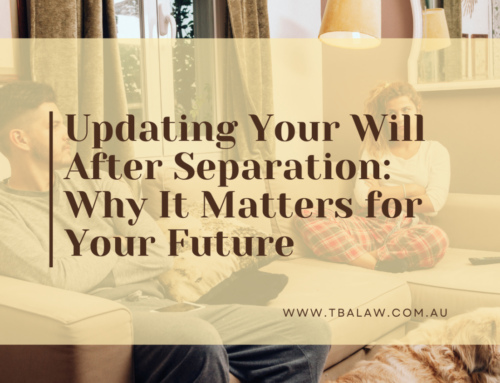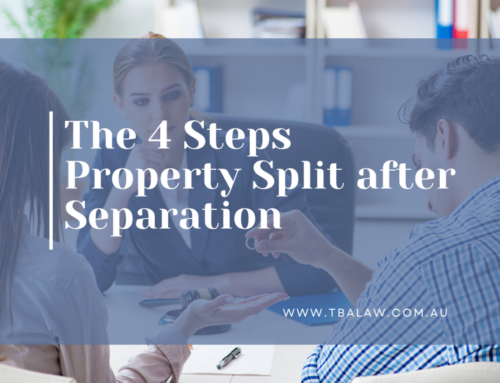What I really want to know- should I stay or should I go?
by Lajita Allan-Agnew
Making the decision that you want to separate from your spouse, as hard as that may be is the last step before you need to start considering the practicalities of separation. The most confronting decision is whether or not you ought to move out of the matrimonial home. This decision already has the burden of being emotional but for a lot of parties, it is strategic.

Prior to making a decision, we advise that you should consider the following:
Is Safety and or Comfort an Issue?
If your situation is such that you or your children are victims of family violence than it’s a no brainer! You must put your safety first and this includes contacting the police and reporting the abuse. In cases where there is family violence, the police will take out a protective order that removes the perpetrator from the family home.
If there is no family violence, do not use the ability to apply for an intervention order be ‘your strategic decision’. Intervention orders are a heavy burden and breaches lead to criminal charges. Misuse of them is an abuse of process and if they are based on false claims then the order will be dismissed at a contested hearing.
If I leave, will it affect how often I can see my children?
Separation is difficult for adults and it can be traumatic for children. Separation is based on your personal choice but whether you leave with your children or leave them behind should be under the sole motivation of what’s in the best interest of the child.
There are cases where parties with children have managed to live in the matrimonial home together while separated. These cases are rare, and they involve parents that can separate their decision from their responsibility to parent. They are also respectful towards each other and can compartmentalise their parenting from their separation journey. If however the separation process is causing arguments, hostility and denigration of each other, that is not in the best interest of the child and is also an example of family violence.
How often you will see the children does not correlate with you leaving the matrimonial home. It has everything to do with what is in the best interest of the child and this is interdependent on practicalities like how far you live from your partner and where the child goes to school. For example, if you have relocated interstate, it will not be in a child who is in year twelves interest to spend 12 hours every weekend to come and visit you. On the other hand, if you live five minutes away or in the same street, it is possible for your child to live half the time with you and half the time with the other parent. If however you have left the matrimonial home when the child/ren are very young (for example 0-2 years old) and you have not seen or spent time with the child/ren for an extended period (generally more than six months) then the other party or the court may recommend that you start off with supervised visits with the aim of reintroducing you to the child. This is not to punish you for moving out of the matrimonial home, rather it is to ensure the psychological wellbeing of the child.
Where parties cannot agree to a parenting plan, an application is made to the Family Court or Federal Circuit Court of Australia and more often than not, an opinion is sought from a family report writer. The report writer will interview all parties and give his or her recommendations for a parenting plan to the court.
Can you afford it?
Budgeting is a challenge for couples in an intact relationship and it may well be that you cannot afford to move out or that you cannot support two households. This is a common problem, for example in a situation where one party is the sole income earner and the other party either is unqualified to secure employment or the earnings are insufficient to cover living expenses. For the higher income earner, it is difficult because he or she may have the burden or expenses that come with a new residence whilst paying child support and or maintenance. It is also common place for the higher income earner to continue paying many of the household expenses, including the mortgage and insurance payments. What this equates to is a disparity in living situation.
Will moving out impact how much I will get?
When it comes to property, to make both parties living situations fair and equitable, it is advised that you finalise your property settlement at the earliest opportunity. This way you can divide the asset pool and define your financial commitments to facilitate your new lifestyle. The Family Law Act 1975 sets out the general principles the court considers when deciding financial disputes after the breakdown of a marriage. The general principles are the same and are based on:
a. working out what you’ve got and what you owe, that is your assets and debts and what they are worth.
b. the direct financial contributions by each party to the marriage or de facto relationship.
c. the non-financial contributions to the marriage or de facto relationship and
d. future requirements.
Noting the above considerations, there is no one fits all formula to answer the question of whether you should stay in the matrimonial home or if you should go. We at TBA Law can help you with questions surrounding the decision and how it will impact on your property and parenting matters. For further queries contact us on 1300 043 103 to make an appointment in any one of our Victorian offices located in Melbourne, Nagambie, Wallan and now in Seymour.





Leave A Comment